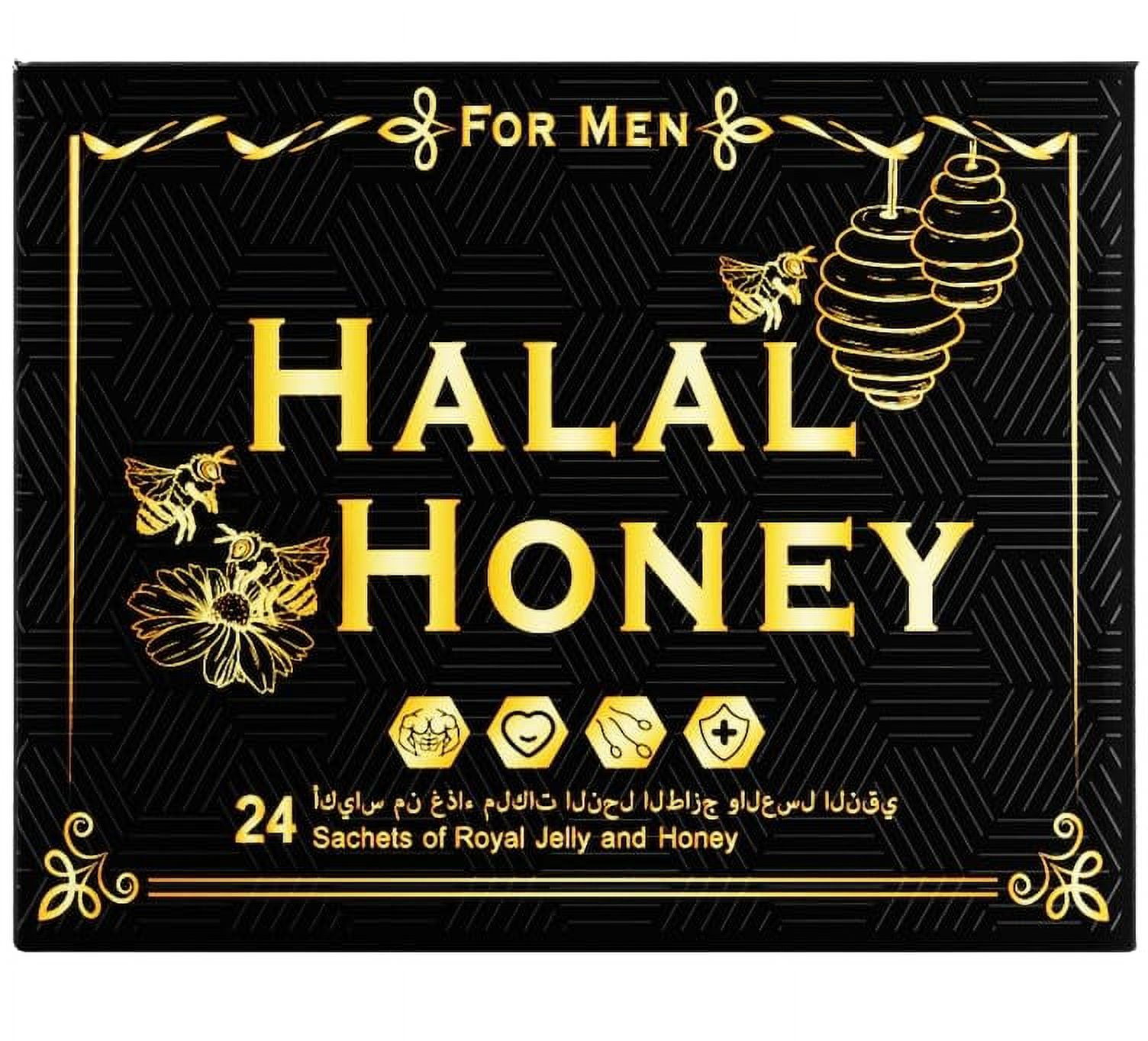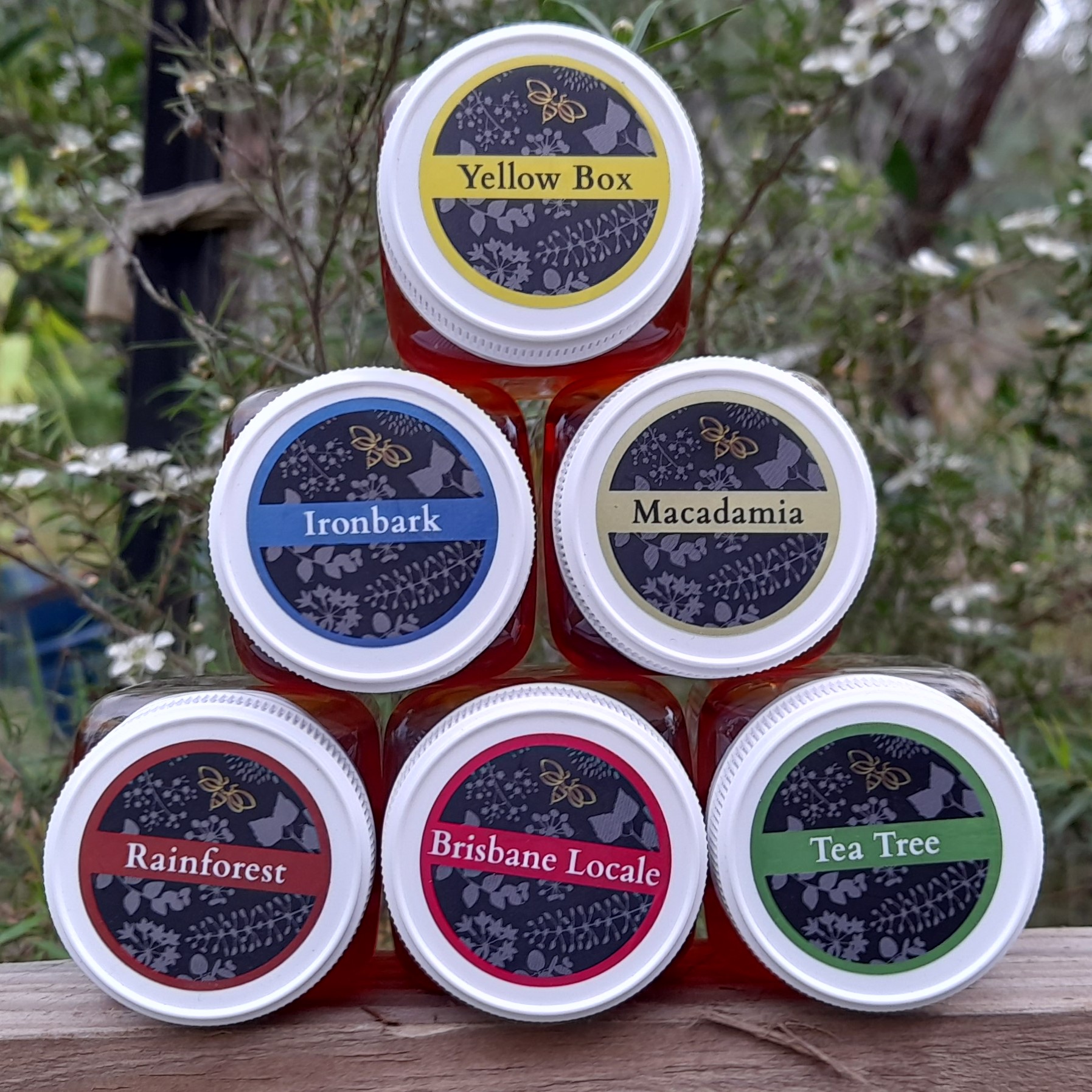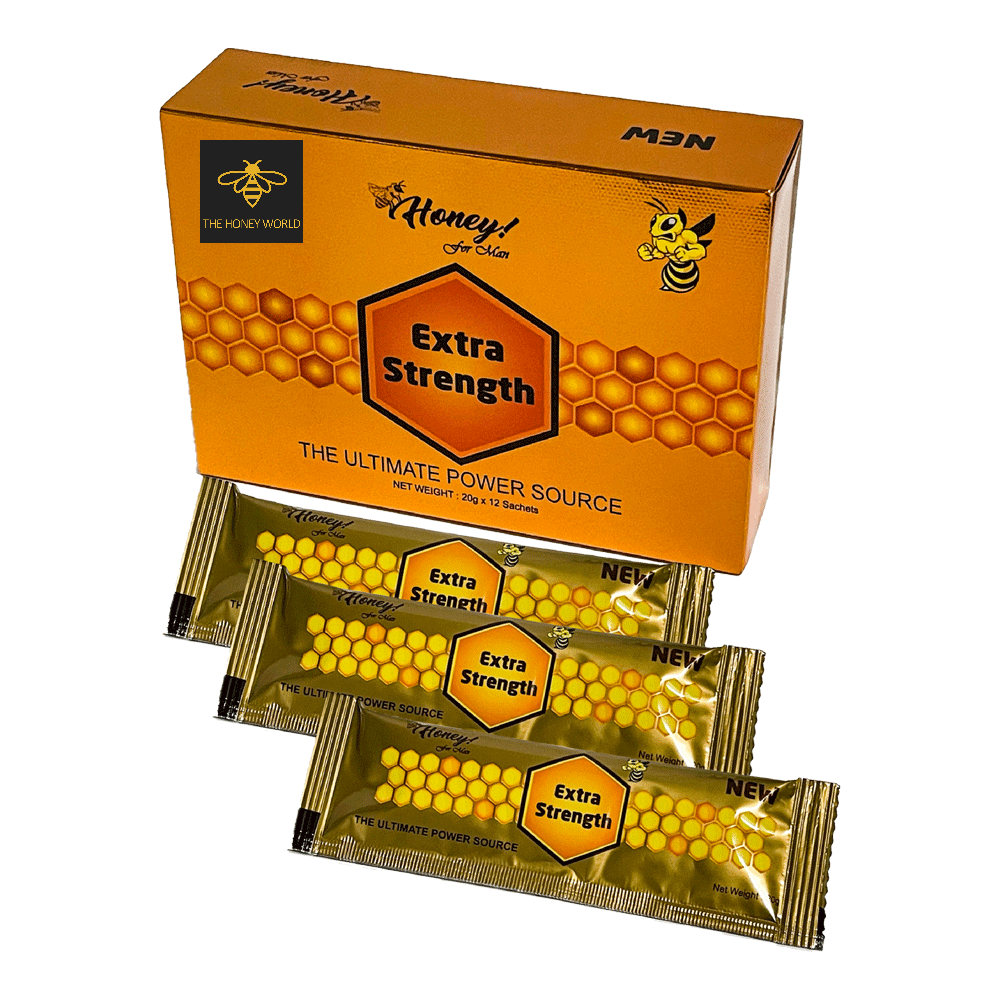Royal Honey Packs: Scam Or Real Deal? What You Need To Know!
Are you searching for that perfect little boost, a natural pick-me-up conveniently packaged? The quest for readily available and authentic honey packs has become surprisingly complex, with consumers navigating a market flooded with both genuine and imitation products.
The allure of honey packs lies in their simplicity and potential health benefits, drawing consumers to gas stations, smoke shops, and specialty stores in hopes of finding that golden elixir. However, the reality often involves sifting through a confusing landscape of questionable products, where distinguishing the real deal from cleverly disguised fakes can be a daunting task. The prevalence of online retailers promising express shipping and rock-bottom prices further complicates the matter, leaving consumers to wonder: Where can I find a truly authentic and beneficial honey pack?
| Category | Information |
|---|---|
| Product Type | Honey Packs (various types, including Royal Honey VIP, Black Thai Honey, and beauty mask variations) |
| Primary Use | Traditionally marketed for sexual enhancement, general wellness, and skincare. |
| Ingredients | Typically includes honey, and may contain other ingredients like herbs (ashwagandha, maca root, ginseng), vitamins (Vitamin C), and in the case of mask packs, specialized materials like paper, black clay, or rose gold infusions. |
| Availability | Often found in gas stations, smoke shops, specialty stores, and online retailers. Availability and authenticity vary significantly. |
| Authenticity Concerns | A significant issue, with many products on the market being counterfeit or containing undisclosed ingredients (like Cialis and Viagra). |
| Regulatory Warnings | The FDA has issued warnings against certain "Royal Honey VIP" products due to the presence of unlisted pharmaceuticals. |
| Consumer Experiences | Mixed, with some users reporting positive effects, while others report no effects or suspect the products are fake. |
| Alternative Uses | Honey also used as ingredient in shampoo and conditioner line (&honey), and the value of it as natural remedy. |
| Reference Website | U.S. Food and Drug Administration (FDA) |
The anecdotal evidence is rife with tales of disappointment. "I ordered vip 12 x 20g," one consumer shared, "The packaging tries to mimic the real thing but you can tell by looking at it it's fake. The product itself is lighter, thinner, and does not taste that good. I took 3 packets and nothing happened." This sentiment echoes across numerous online forums and review sections, painting a picture of a market plagued by inauthenticity. Real honey, consumers attest, is delicious and potent, requiring only a small dose to feel its effects. The counterfeit versions, on the other hand, often fall flat, leaving users feeling cheated and questioning the safety of the products they've ingested.
- Best Ways Where To Watch Movies Online Streaming Guide More
- What To Know About Bollyflix Your Guide To Streaming More
The lure of "royal honey," often touted for its purported benefits in male enhancement and erectile dysfunction, has particularly drawn the attention of regulators. The Food and Drug Administration (FDA) has issued warnings against purchasing or using Royal Honey VIP, a product aggressively marketed online, including on websites like www.thirstyrun.com. The agency's investigations have uncovered the presence of active ingredients found in Cialis and Viagra, prescription medications used to treat erectile dysfunction, in these so-called "natural" supplements. This revelation underscores the potential dangers of unregulated supplements and the importance of exercising caution when purchasing products online that promise miraculous results.
The challenge of sourcing authentic honey packs extends beyond the realm of sexual enhancement products. Even within the beauty industry, where honey is a prized ingredient in skincare, concerns about authenticity and quality persist. "The black honey mask pack has the same materialbut it was black in color," one user noted, highlighting the inconsistencies in products claiming to contain specific ingredients. Other variations, such as rose gold honey mask packs with their fun honeycomb patterns, or ginseng red honey oil mask packs utilizing paper mask materials, further illustrate the diversity of offerings, but also the potential for misrepresentation.
The geographical element also plays a role in the hunt for legitimate honey packs. For instance, the question "Where can I buy a honey pack in Montreal?" speaks to the localized demand and the varying availability of these products across different regions. The existence of online communities like "jasontheweenie," with its 13,000 subscribers, or broader platforms like AskReddit, with its 46 million members, underscores the widespread interest in these products and the desire for reliable information.
- Candace Owens Exposes The Truth Behind Becoming Brigitte Macron
- Ask4movie More Your Guide To Free Movies Streaming
The issue of authenticity is further complicated by the proliferation of online vendors and the challenges of verifying their legitimacy. As one concerned consumer pointed out, "Any website that purportedly sells real royal honey and comes delivered packaged poorly, I'd definitely question the safety and quality." This highlights the importance of scrutinizing packaging, labeling, and vendor reputation before making a purchase. The fact that some brands choose to fill black market branded carts from websites like dhgate.com raises serious concerns about product safety and ethical sourcing.
Beyond the concerns about authenticity, the benefits of genuine honey packs should also be considered. Vitamin C, a key ingredient, is believed to support testosterone production and reduce oxidative stress, potentially improving blood flow. Honey packs, in general, are thought to promote better circulation, which is linked to sexual wellness and overall confidence. However, these potential benefits are contingent upon the product being genuine and free from harmful additives.
For those seeking genuine honey-based products, particularly for hair care, there are alternatives to consider. &honey, for example, is a drugstore shampoo and conditioner line known for its pleasant scent and sulfate-free formula, designed to protect hair color and moisture. Recommendations for maintaining healthy hair include regular trims, washing hair sparingly (two to three times a week), and using clarifying shampoo to remove silicone buildup.
Ultimately, the search for authentic and beneficial honey packs requires a discerning eye, a healthy dose of skepticism, and a willingness to do thorough research. Consumers must be vigilant in scrutinizing product packaging, vendor reputation, and regulatory warnings. While the promise of enhanced sexual performance or improved well-being may be enticing, it's crucial to prioritize safety and authenticity above all else. The market may be flooded with imitation products, but with careful investigation, consumers can still find genuine honey packs that deliver on their intended benefits.
The debate surrounding royal honey, particularly its purported effects on sexual performance, has reached a fever pitch, fueled by viral TikTok videos and anecdotal accounts. One such TikTok, garnering over 400,000 views, featured a student at Arizona State University discussing the product's alleged benefits. However, the reality often falls short of the hype. As one skeptical user put it, "Go youtube royal honey, my boys were talking about that shit, bro its basically just herbs like ashawaganda, maca root and ginseng mixed into honey, but people on youtube talk like its some kind of viagra, i tried it and it didnt do shit, more placebo effect for people who listen to the reviews."
The ingredients themselves, such as ashwagandha, maca root, and ginseng, are known for their potential adaptogenic and energy-boosting properties. However, their efficacy in treating erectile dysfunction or significantly enhancing sexual performance remains a subject of debate. The placebo effect, as suggested by the user above, may play a significant role in the perceived benefits of royal honey. This highlights the importance of approaching such products with a critical mindset and relying on scientific evidence rather than anecdotal accounts.
The allure of readily available solutions for sexual enhancement often leads consumers down a path of questionable products and misleading claims. While the desire for improved sexual performance is understandable, it's crucial to prioritize safety and seek guidance from qualified healthcare professionals. The unregulated nature of the supplement industry makes it particularly vulnerable to fraudulent products and deceptive marketing practices.
Before turning to royal honey or other similar products, individuals experiencing sexual dysfunction should consult with a doctor to rule out underlying medical conditions and discuss appropriate treatment options. These options may include lifestyle changes, prescription medications, or therapy. Self-treating with unproven supplements can be risky and may delay or interfere with effective medical care.
The viral nature of royal honey and its associated claims underscores the power of social media in shaping consumer perceptions. TikTok, in particular, has become a breeding ground for health and wellness trends, often with little to no scientific basis. Consumers should be wary of relying solely on social media for information about health products and should always seek out credible sources and professional advice.
The proliferation of online retailers offering "royal honey vip starting from $3.99 only" further complicates the issue. The low prices and aggressive marketing tactics employed by these vendors often raise red flags, suggesting that the products may be counterfeit or of questionable quality. Consumers should be cautious of deals that seem too good to be true and should always research the vendor before making a purchase.
The experience of one user who "Just ordered the vip royal honey 12 x 20g" highlights the potential for disappointment. Upon receiving the product, the user concluded that "Its not the real deal. Packaging is very close but not but obviously off when compared to the correct product. The flavor is not as good and the color is lighter than it should be. I ate 3 packs and nothing happened. The real honey only takes.5 to 1 packet." This anecdotal account underscores the challenges of distinguishing genuine royal honey from counterfeit versions and the potential for wasted money and unmet expectations.
The inconsistency in product quality and efficacy is a common complaint among users of royal honey. Some individuals report experiencing positive effects, while others report no effects at all. This variability may be due to differences in product formulation, individual sensitivities, or the presence of undisclosed ingredients. The lack of standardization and regulation in the supplement industry makes it difficult to ensure consistent quality and efficacy.
The use of honey as a natural remedy has a long and rich history, spanning various cultures and traditions. Honey has been used for centuries to treat a wide range of ailments, from coughs and colds to wounds and skin infections. Its antibacterial, anti-inflammatory, and antioxidant properties have been well-documented in scientific studies. However, the use of honey in products like royal honey, which are marketed for specific health benefits, requires careful consideration and scrutiny.
While honey itself may offer certain health benefits, the addition of other ingredients, such as herbs and vitamins, can alter its properties and potential effects. The combination of honey with other ingredients may also increase the risk of adverse reactions or interactions with medications. Consumers should always consult with a healthcare professional before using honey-based products for medicinal purposes, especially if they have underlying health conditions or are taking medications.
The versatility of honey extends beyond its use as a health remedy. Honey is also a popular ingredient in skincare products, thanks to its moisturizing, soothing, and antibacterial properties. Honey-based masks and cleansers are often used to treat acne, reduce inflammation, and improve skin tone. However, as with other honey-based products, it's important to choose high-quality, authentic honey and to be aware of any potential allergies or sensitivities.
The use of honey in hair care is another area where its benefits are widely recognized. Honey is a natural humectant, meaning it attracts and retains moisture, making it an excellent ingredient for hydrating dry and damaged hair. Honey-based shampoos and conditioners can help to improve hair texture, add shine, and reduce breakage. However, it's important to choose products that are formulated for your specific hair type and to avoid products that contain harsh chemicals or sulfates.
The discussion surrounding "honey packs" also brings up the relevance of well-established hair care practices. When hair is damaged, for example, regular trims are essential to remove split ends and prevent further breakage. Washing hair too frequently can strip it of its natural oils, leading to dryness and damage. Using a clarifying shampoo periodically can help to remove buildup from styling products and environmental pollutants, leaving hair clean and refreshed.
In conclusion, the world of honey packs is a complex and often confusing one. Consumers must be vigilant in distinguishing genuine products from counterfeit versions, in scrutinizing marketing claims, and in prioritizing safety and authenticity above all else. While honey itself offers a range of potential health and beauty benefits, the use of honey-based products, especially those marketed for specific health conditions, requires careful consideration and consultation with healthcare professionals. By approaching the market with a critical mindset and prioritizing credible information, consumers can make informed decisions and avoid the pitfalls of misleading claims and fraudulent products.
The search for authentic honey products also leads to a deeper examination of the supply chain and manufacturing practices. Consumers are increasingly interested in knowing where their honey comes from, how it is processed, and whether it is ethically sourced. The rise of beekeeping as a sustainable agricultural practice has further fueled the demand for locally sourced, raw honey. This trend reflects a growing awareness of the environmental and social impact of our consumption choices.
Supporting local beekeepers and purchasing honey from reputable sources can help to ensure the authenticity and quality of the product. Local beekeepers are often more transparent about their practices and are more likely to offer raw, unfiltered honey that retains its natural enzymes and antioxidants. By choosing local honey, consumers can also support their local economy and reduce their carbon footprint.
The process of honey extraction and filtration can also affect its quality and nutritional value. Raw honey, which is typically extracted directly from the honeycomb and minimally filtered, retains more of its natural enzymes, pollen, and antioxidants. Filtered honey, on the other hand, may be heated and processed to remove impurities, but this can also reduce its nutritional content. Consumers who are seeking the maximum health benefits of honey should opt for raw, unfiltered varieties.
The color and flavor of honey can also vary depending on the type of flowers that the bees have visited. Different floral sources produce honey with different characteristics, ranging from light and delicate to dark and robust. For example, clover honey is typically light in color and has a mild, sweet flavor, while buckwheat honey is dark and has a strong, earthy flavor. Exploring different varieties of honey can be a fun and educational experience, allowing consumers to discover their personal preferences.
The packaging of honey products can also provide clues about their authenticity and quality. Look for honey that is packaged in glass jars, as plastic containers can leach chemicals into the honey over time. The label should also list the ingredients and nutritional information, and it should be free of any misleading or exaggerated claims. If the label contains unfamiliar or unpronounceable ingredients, it's best to avoid the product.
The use of honey in cooking and baking is another area where its versatility shines. Honey can be used as a natural sweetener in a wide range of recipes, from cakes and cookies to sauces and marinades. Its unique flavor profile can add depth and complexity to dishes, and its moisture-retaining properties can help to keep baked goods moist and tender. When using honey in cooking, it's important to adjust the amount of liquid in the recipe accordingly, as honey is more viscous than sugar.
The potential health benefits of honey extend beyond its antioxidant and antibacterial properties. Some studies have suggested that honey may help to improve sleep quality, reduce anxiety, and boost the immune system. However, more research is needed to confirm these findings and to determine the optimal dosage for various health conditions. As with any natural remedy, it's important to use honey in moderation and to consult with a healthcare professional before using it to treat any serious health condition.
The ongoing debate surrounding honey packs and their purported benefits highlights the importance of critical thinking and media literacy. Consumers are bombarded with information from a variety of sources, including social media, advertising, and word-of-mouth. It's essential to be able to evaluate the credibility of these sources and to distinguish between factual information and misleading claims. Relying on scientific evidence and professional advice is crucial for making informed decisions about health and wellness.
The future of honey production and consumption is likely to be shaped by several factors, including climate change, pollinator decline, and consumer demand for sustainable and ethically sourced products. Protecting bee populations and promoting sustainable beekeeping practices are essential for ensuring the long-term availability of honey and other bee products. Consumers can play a role in supporting these efforts by choosing honey from local, reputable sources and by advocating for policies that protect pollinators and their habitats.
In conclusion, the quest for authentic and beneficial honey packs requires a multifaceted approach, encompassing critical thinking, media literacy, and a commitment to sustainable consumption practices. By educating ourselves about the complexities of the honey market and by supporting local beekeepers and ethical sourcing practices, we can ensure that we are getting the most out of this natural treasure while also protecting the environment and supporting local communities.
- Decoding The 1851 George Stokes Equation Keyword Explained
- Bollyflix More Your Guide To Streaming Indian Cinema Online

Royal Honey Men

Honey Lovers Pack A Delicious Honey Treat for Honey Lovers

Buy Royal Golden VIP Honey for Male Online in USA The Honey World